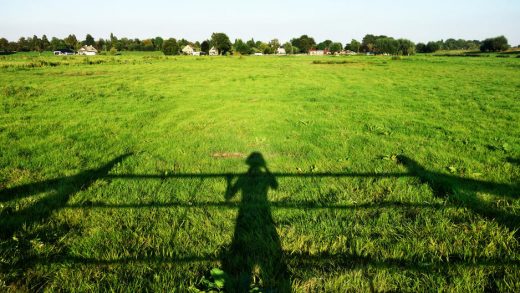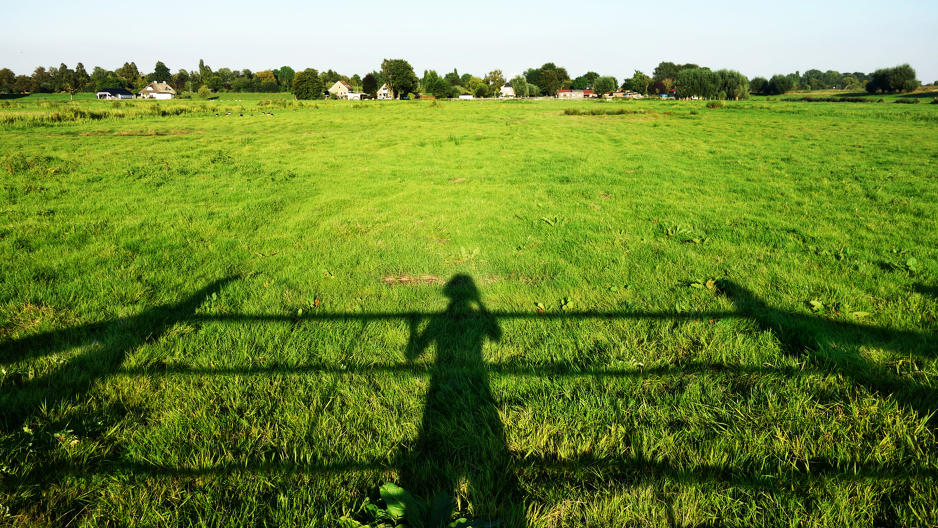Why These Freelancers Ditched Cities For Rural America
“We had gunfire in our Harlem neighborhood. We have daily gunfire here, but it’s from hunters and gun enthusiasts,” explains Hans Hageman, a creative marketing consultant and strategist. A New York native who remembers an earlier, grittier incarnation of the city, he’s doing today what would have been hard to conceive of earlier in his career—living in a rural area and working for himself.
At one point, Hageman was living in a brownstone and making six figures as a nonprofit executive, but he wanted a different life. So he moved to Pine Island, New York (population 1,534), 55 miles northwest of New York City, but about as small-town as you can get and still within driving distance. “I only wish I had walked this path sooner,” he says. “In the changing world of jobs and work, I want my kids and the students I have taught to realize that the traditional path is dead.”
It may not be quite dead, but for many, that path does seem to be leading to different places, including far afield of urban employment hubs. To be sure, rural America has always enticed bold entrepreneurs striking out on their own, and people have long built successful, self-employed lifestyles far from cities. But the barriers to doing so are lowering—and fast. Just as throngs of “solopreneurs” are finding it’s easier and more cost-effective to work for themselves in Phuket or Belgrade than for a boss in New York or Seattle, some urban freelancers are likewise finding new incentives to resettle in rural areas in the U.S.
According to the latest survey by Upwork and the Freelancers Union, there were 55 million Americans—or 35% of the U.S. workforce—doing some form of freelance work this year. Seventy-three percent of those freelancers say technology is making it easier to find independent work, and freelancing is considerably more popular among millennials and gen Zers than with older age groups.
What’s more, while 35% of freelancers live in cities (compared with 31% of U.S. workers overall), 47% live in the suburbs (versus 50% of the working population) and a not inconsiderable 18% live in rural areas (on par with the 19% of non-freelancers who do). With such widespread ability to do market-competitive knowledge work from anywhere, marching into a maze of cubicles each morning wearing business casual may seem less appealing—and not just to twentysomethings.
Here’s why these rural freelancers headed into the countryside, and what they say the main rewards and challenges have been.
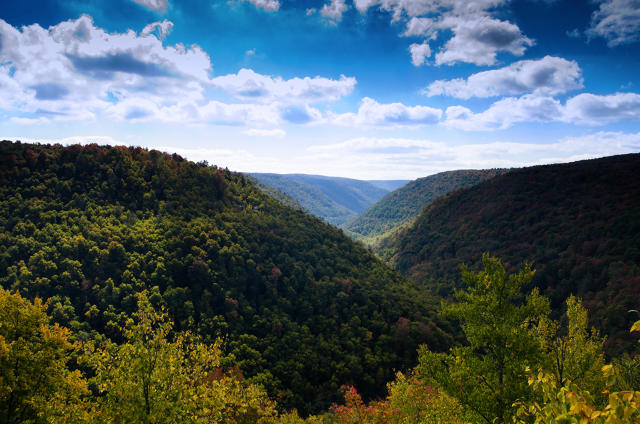
Why People Go Rural
Leonard Sipes, Jr., is technically retired from his government job. But he saw retirement as a change to move to a mountaintop in West Virginia, build his own business, and write. As he explains, he gets to “sit here and watch the bears walk through our front yard while doing my work.” Sipes says that lifestyle actually informs his work. “The environment is friendly and devoid of the stressors of urban life.”
But the change of pace, a different attitude, and lower cost of living aren’t the only reasons for freelancers choosing rural locales. Kristin Kuhns, a content writer and project manager, went rural to have space for her side passion: animal rescue. “I wanted the land to be able to have peace, and do my rescue work as needed without worrying about bothering the neighbors.” Lisa Gerber, founder of Big Leap Creative, resettled in the Selkirk Mountains of Idaho because she wanted quick access to trails and skiing.
For others, family is the biggest incentive. Lisa Knerl, a freelance content professional and breadwinner for her six kids, moved to rural Nebraska to “put her family first,” despite making less money. Jeff Millett, an SEO consultant, moved his family to Snowflake, Arizona (population 5,576), “because I want my family—five sons and one new baby daughter—to experience small-town life. In the morning my boys and I collect chicken eggs, feed our rabbits and goat, and do chores.” He wants his children to learn those raw skills and spend more time outside.
When Hageman left Harlem, it was for his kids, too. “I wanted them to be around nature, experience a working-class environment, hopefully grow up in a place that was really a community, and learn to grow things,” he says. Like Millet, Hageman sees that as a matter of his kids’ values and the skills they develop, not just lifestyle trappings: “I want them to learn that if you are useful, tough, and kind, you’ll have a place in any community regardless of race, class, or geography.”
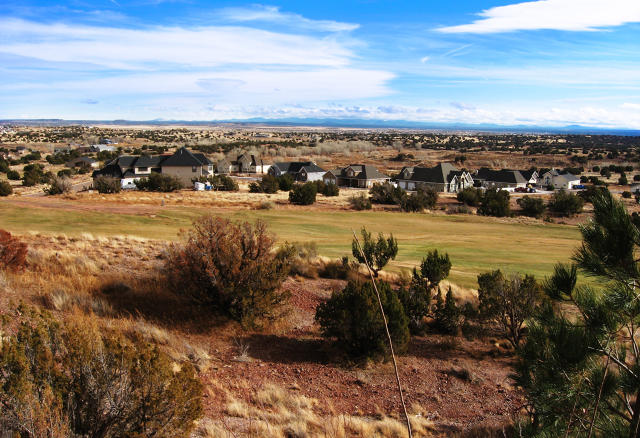
The Challenges Of Rural Freelancing
Of course, making a freelance lifestyle work in a rural area comes with its challenges, especially for former urbanites like Hageman. “We’re a black family from Harlem coming into a farming community that was mainly created by Polish onion farmers,” he points out. “We’ve had a choice about how to interpret the looks [and] stares we get.” Hageman says it’s taken some work to build trust in his community, both professionally and personally. But he wants his kids to learn to go into situations like this believing—until proven otherwise—that any initial tensions come more from curiosity than anything else.
As international freelancers also point out, reliable internet access can still be a challenge in rural parts of the U.S. Kristine Tanzillo, who runs a PR agency from her 14-acre home in rural Texas (population 400), ran into major, persistent tech troubles early on. “There is no cable, so internet service is satellite-based. For about five years, we struggled with email and internet because the satellite service was so poor. We also had to pay an outrageous monthly service and received subpar service.”
Tanzillo says cell service on her property isn’t much better, making it tough to communicate with clients who like to text. And even if they don’t have to rely on satellite internet, rural freelancers hit other obstacles. Joel Young, a video specialist and former minister, explains, “Rural areas often receive hand-me-down equipment from larger, more urban areas after they’ve used it for five years. So available speeds are quite literally behind the times.”
And if struggling with digital connectedness can feel isolating, so can the simple facts of geography. “It can be isolating at times,” Gerber says of the mountains of Idaho, “but then I remember I can feel isolated anywhere, even when I lived in the city.” That’s sometimes compounded by the feeling that no one around you really understands what your work is like.
Kayla Sloan, who works for herself in western Kansas, says, “It can be difficult to watch other freelancers connecting with each other in person while there’s no ‘freelance culture’ in your rural area.” The lack of a professional community can lead to frustrating interactions. “Most people don’t know what I do or understand how I make money online,” she says. “Some tend to think I don’t work at all, so I’m constantly being asked for ‘favors.’ I think their perception is that because I don’t leave the house to do my work, I don’t have any real deadlines to meet or work to do.”
Tara Young, a communications strategist with an MBA who lives outside Prairie Farm, Wisconsin (population 473), agrees. Her advice is, “Don’t get discouraged if people glaze over when you explain your job to them. As long as you love what you do, that’s what matters.”
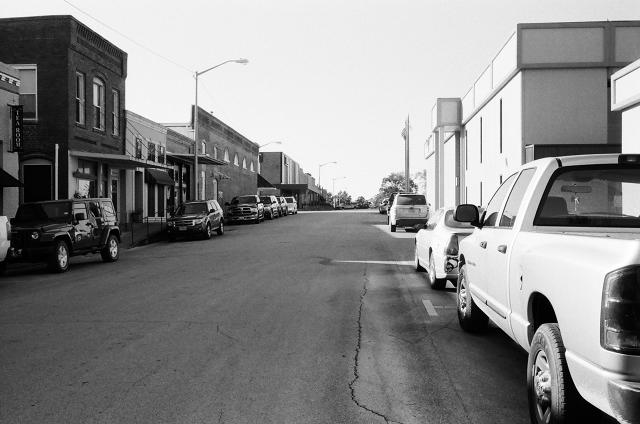
Some Tips From Rural Freelancing Pros
All the rural freelancers I spoke to said these challenges were not only worthy tradeoffs but pretty manageable once they’d established an approach that worked. Most agreed that tackling the technical challenges is a good first step. It’s important not only to be able to communicate with clients but also to feel connected to others while you’re far away. Tanzillo suggests talking to local businesses to find out what technology issues the community grapples with most. This way you know what you’re getting into and can prepare for the worst version of what they face.
Young suggests keeping an eye on the big picture: “Don’t try to be normal,” he warns. “We spend our adolescent years just trying to fit in, and most of us never grow out of that. How you earn an income is not who you are. You don’t have to fit into any kind of mold to be successful or happy. Sometimes being different not only yields better results, but it can also be a more enjoyable way to live.”
Fast Company , Read Full Story
(27)

